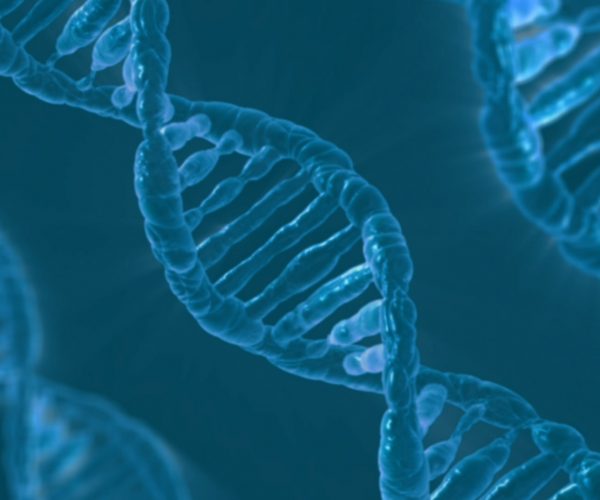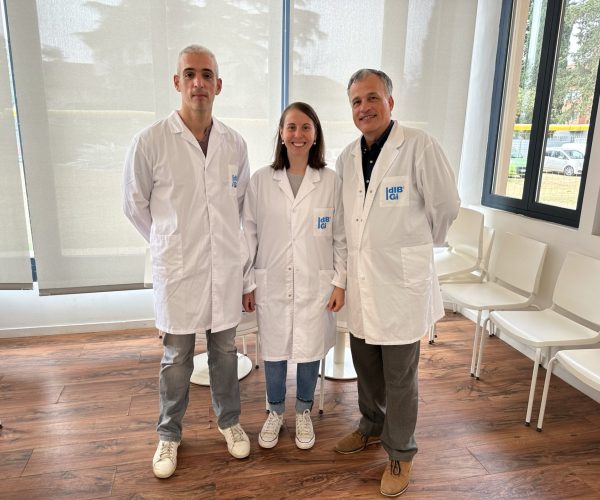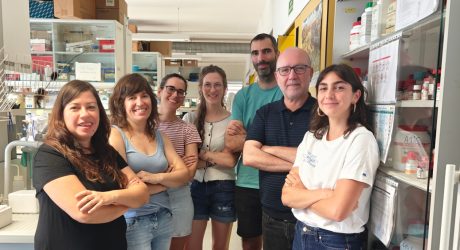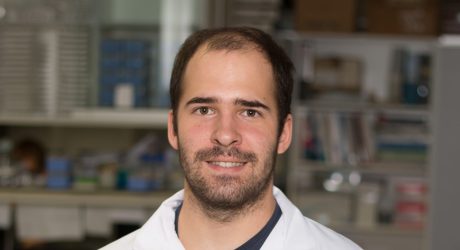A study by IDIBGI and UPF links a gut virus to food addiction through the alteration of two neurotransmitters
- The scientific article, published on the cover of the prestigious journal Nature Metabolism, also associates the presence of this type of virus, which is part of the gut microbiota, with disruptions in the functioning of two neurotransmitters involved in the reward system and satiety regulation—mechanisms typical of addiction.
- The research also identifies a substance in blood plasma, anthranilic acid, that may protect against behaviors linked to food addiction.
A new study by the Biomedical Research Institute of Girona Dr. Josep Trueta (IDIBGI) and Pompeu Fabra University (UPF) has revealed that a type of virus present in the gut microbiota, specifically Microviridae, is associated with food addiction and obesity. Until now, microbiota research has primarily focused on bacteria, but this finding highlights that other microorganisms, such as viruses, also influence the balance of gut health and behaviors related to nutrition and metabolism. The study, published in the prestigious journal Nature Metabolism, also identifies a substance in blood plasma, anthranilic acid, that could protect against behaviors associated with food addiction.
Food addiction is a disorder where individuals lose control over their eating habits, directly linked to issues such as obesity. Food addiction triggers brain mechanisms similar to those involved in other addictions. This new study associates the presence of a specific Microviridae species in the gut microbiota with obesity and food addiction.
The study links the presence of this type of virus and food addiction to serotonin and dopamine metabolism. Specifically, the researchers found that the presence of Microviridae correlates with higher blood levels of tryptophan and tyrosine. Tryptophan and tyrosine are substances the body uses to produce serotonin and dopamine, essential neurotransmitters in mood and pleasure regulation and involved in brain mechanisms like the reward system and satiety and well-being regulation.
“The study underscores the importance of including viruses in gut microbiota research, as these microorganisms have often been overlooked. It is important to note that the composition of the virome—the ecosystem of viruses in the gut—is highly specific to each individual but remains very stable over time. This stability facilitates the adoption of personalized strategies to treat food addiction,” highlights Dr. Jordi Mayneris-Perxachs, head of the Integrative Systems Medicine and Biology Group at IDIBGI, lead researcher of the study, and co-corresponding author of the article.
“The gut microbiota could become an innovative avenue for treating obesity and food addiction through dietary supplements. These robust findings build on our understanding of the microbiota-brain connection and identify the role of components such as Microviridae,” emphasizes Dr. José Manuel Fernández-Real, also a co-corresponding author, head of the Nutrition, Eumetabolism, and Health Group at IDIBGI and CIBERObn, head of the Endocrinology Section at Trueta Hospital, and professor at the University of Girona.
Results validated in humans, mice, and fruit flies
The conclusions were validated in three independent groups of people, totaling 264 individuals, and align with results from another analysis by the same IDIBGI team in a cohort of 942 people, where an association between Microviridae and lower inhibitory control was confirmed.
The association discovered in humans was also tested in mice and fruit flies. In collaboration with UPF researchers, when microbiota from patients with a high presence of Microviridae was transferred to mice, the mice exhibited greater food addiction and disruptions in tryptophan, serotonin, and dopamine metabolism in the brain. These mice also displayed typical food addiction behaviors, such as motivation, compulsivity, and persistence.
“The identification of this novel mechanism involved in the loss of control over food intake could represent a significant advancement in developing new therapeutic strategies for a more effective approach to these eating disorders and their associated metabolic complications, such as obesity,” states Dr. Rafael Maldonado, co-corresponding author and head of the Neuropharmacology Laboratory in the Department of Medicine and Life Sciences (MELIS) at Pompeu Fabra University.
Anthranilic acid, a potential protective factor
Through metabolomic analysis of patient blood samples, the IDIBGI team also found that the presence of this type of virus (Microviridae) was associated with lower concentrations of a tryptophan-derived compound called anthranilic acid. This finding suggests that the presence of this substance may prevent the manifestation of behaviors typical of food addiction.
To validate this hypothesis, anthranilic acid was administered to mice and fruit flies (Drosophila melanogaster). In mice, the UPF team observed that anthranilic acid supplementation reduced food addiction and altered pathways related to neurotransmitter metabolism and synthesis, such as serotonin and dopamine. In fruit flies, experiments led by IDIBGI researcher Dr. Anna Castells-Nobau showed that anthranilic acid regulated feeding behavior through dopamine metabolism..
Researchers from the Foundation for the Promotion of Health and Biomedical Research of the Valencian Community (Fisabio)-CIBERESP and the University of Alicante also collaborated on this study, among others..
Reference article: Castells-Nobau, A., Puig, I., Motger-Albertí, A. et al. Microviridae bacteriophages influence behavioural hallmarks of food addiction via tryptophan and tyrosine signalling pathways. Nat Metab (2024). https://doi.org/10.1038/s42255-024-01157-x
About the IDIBGI
The Biomedical Research Institute of Girona Dr. Josep Trueta (IDIBGI) conducts translational research to improve health and patient care. The IDIBGI is organized into 25 research groups distributed across five scientific areas (Cardiovascular and Respiratory, Metabolism and Inflammation, Neurosciences, Oncohematology, and Mental Health), bringing together over 400 individuals, including healthcare professionals and basic researchers, in the Girona region.
The IDIBGI is a private law foundation within the public sector of the Government of Catalonia. Its board of trustees includes the Departments of Health and Research, the Catalan Health Institute (ICS) Girona, the Institute of Health Assistance (IAS), the Catalan Institute of Oncology (ICO) Girona, and the University of Girona. The IDIBGI is a CERCA center (Research Centers of Catalonia).




